Library of Congress Cataloging-in-Publication Data
Long, Denise.
Survivor kid: a practical guide to wilderness survival / Denise Long.
p. cm.
Includes bibliographical references and index.
ISBN 978-1-56976-708-5
1. Wilderness survivalJuvenile literature. I. Title.
GV200.5.L66 2011
613.6'9dc22
2011004952
Cover and interior design: Andrew Brozyna, AJB Design, Inc.
Cover images: Kelly V. Brozyna [front top]; Alaska Stock [front left]; PunchStock [front right]; Steve Lowtwait [back right].
Illustrations: Andrew Brozyna [pp. 5, 10, 21-23, 26-35, 44, 47-49, 60, 62, 74, 109, 114, 119, 120, 149 (top), 150 (bottom), 151, 152, 162, 163, 170 (bottom), 171]; Steve Lowtwait [pp. 11, 19, 54, 56, 66, 95, 161, 166, 167, 169, 170 (top), 179-187]
2011 by Denise Long All rights reserved
Published by Chicago Review Press, Incorporated
814 North Franklin Street Chicago, Illinois 60610
ISBN 978-1-56976-708-5
Printed in the United States of America
5 4 3 2 1
To the kids in my neighborhood who love the outdoors as much as I do, to my friends who insisted I write this book, and especially to all the nice people in search and rescue.
CONTENTS
| ANYONE CAN GET LOST
(and What to Do If It Happens to You) |
|
|
|
|
|
|
|
|
|
| WHAT TO DO IF YOU OR
SOMEONE ELSE IS INJURED |
|
INTRODUCTION
The shivering woke me up. My entire body shook and my teeth chattered uncontrollably. It was still dark, and my dog and I were alone in the woods, huddled together in a hastily built bark-and-branch shelter. And it was coldreally cold. I had no sleeping bag or blanket, and the temperature had dropped to 15 degrees Fahrenheit in the dark forest. I tried to get a sip of water, but my water bottle had frozen solid. Lets get up, I told Moxie, my German shepherd. We wriggled out of the tiny shelter and I began to walk unsteadily in place while Moxie stretched and looked for a place to pee. My frozen boots felt like they were made out of rocksbut, as the blood began to flow through my limbs, I stopped shaking and my brain started to work again. For the umpteenth time that long night, I checked my watch, hoping for the miracle of approaching daylight. It was only 3:00 A.M. We still had hours to go before wed see the sun. I stood in the frigid night air and listened to a great horned owl somewhere above me for a minute, then crawled back into my tiny shelter. I pulled Moxie to me and wrapped a tarp over us. With my face pressed against her dusty fur, I promised, Just a few more hours, and well be warm.
Moxie and I were not lost; I had volunteered to spend the night alone with her in a remote forest as part of our search and rescue training. This was the second time I was being tested on my shelter-building skills. Each time, I was not allowed to have a fire or any sort of comfort item, and the temperature was well below freezing. No one could call these practice sessions comfortable, but I did learn that I could survive wintry nights if I was caught outside.
Now you can, too. In fact, the information in this book will help you to survive all kinds of situations you might face if you become lost in the wilderness someday. You wont need to know how to shoot a deer with a homemade arrow, clean and cook it, and turn its skin into a waterproof tarp. You just need to know how to stay healthy and out of trouble until rescuers find you. Ive taught middle school students how to do just thatthe same lessons taught to adults in survival classes. Just because youre young, you do not need to be babied. You can handle it.
This book is for young adventurers who want to build up their survival skills and learn what to do if they ever find themselves lost or in a dangerous situation in the wild. Does that sound like you? Greatlets get started!
ANYONE CAN GET LOST
(and What to Do If It Happens to You)
Anyone can get lost or have an emergency while hunting, hiking, or playing in the wilderness. It happens to kids and adultseven experienced hunters and hikersand occurs most often during simple day hikes or quick outings. That means that this chapter is the most important one in the book. Maybe you skipped it at first so you could read about the fun stuffbuilding different kinds of shelters, identifying animal tracks, or creating a solar still. (I probably would have done the same thing!) All that other stuff is important, but none of it is as crucial as what youll learn in this chapter. You need to read this section carefully, and you may want to talk to a parent about what you have learned.
The most important things you can do to stay safe are actually very easy. First, tell someone where you are going, whom youre going with, and what time youll be back. Adults forget to do this as often as kids do. But how are you going to be found if no one knows where you went? Rescuers could spend hours or even days looking for you in all the wrong places. So remember: the best way to make sure that you are found is to make sure that somebody knows where you might be lost.
Another great thing you can do is to take friends along with you. Having one or more buddies along makes good sense for lots of reasons. For starters, its much easier to find a group of people than it is to find just one. Also, friends can help you build a shelter, collect water, and make noise so that people can find you. And being lost is less scary when you are not alone. Your buddy doesnt even have to be a personyou can bring a dog friend with you to keep you company and keep you warm. If you are with another person or a group of people, stay together.
Last, always carry water, food, and a survival kit. Your kit can be as simple as a water bottle and purification tablets, a lighter, a candy bar, a flashlight, toilet paper, some garbage bags, a first-aid kit, and a whistle. You can read more about more advanced survival kits in (p. 191).
Just by doing these three thingsletting someone know where youre going, taking a buddy along, and having a survival kit with youyoull know that youve done the most important things you can to make sure that youll be found alive and well. But what is better than being found alive and well? Not getting lost in the first place, of course. So how can you help to make sure you dont get lost? Lets look at some of the most common reasons that people (adults as well as kids) find themselves lost in the wilderness:
 It gets too dark to see where youre going. Its easy to misjudge distances or lose track of time when you are exploring and enjoying the outdoors, and activities such as day hikes and rafting trips frequently last longer than expected. Out in the wilderness, especially in the mountains, it can get dark quickly: all of a sudden, the sun disappears behind a hill and you realize you have a long way to walk in the dark to return to your camp or car. Always carry a flashlight or headlamp, as well as extra batteries, with you when you head out into the wilderness.
It gets too dark to see where youre going. Its easy to misjudge distances or lose track of time when you are exploring and enjoying the outdoors, and activities such as day hikes and rafting trips frequently last longer than expected. Out in the wilderness, especially in the mountains, it can get dark quickly: all of a sudden, the sun disappears behind a hill and you realize you have a long way to walk in the dark to return to your camp or car. Always carry a flashlight or headlamp, as well as extra batteries, with you when you head out into the wilderness.
 Someone gets hurt.
Someone gets hurt.

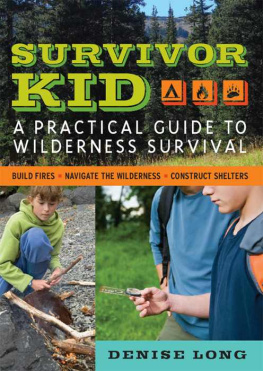
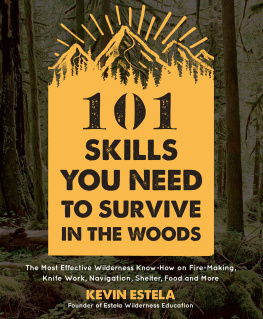
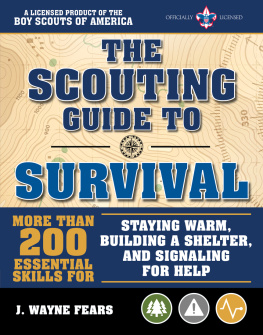
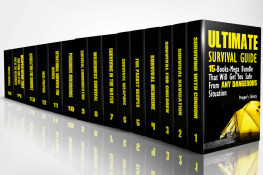

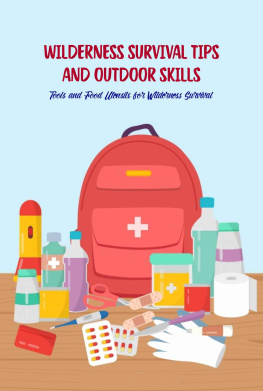
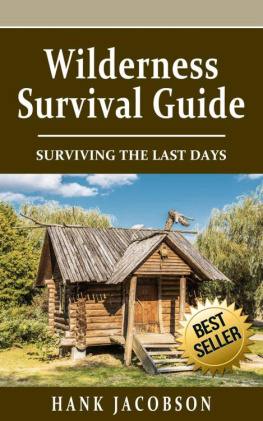
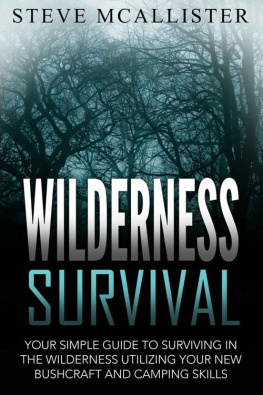

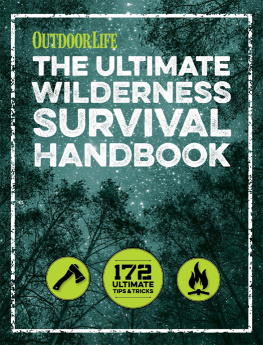

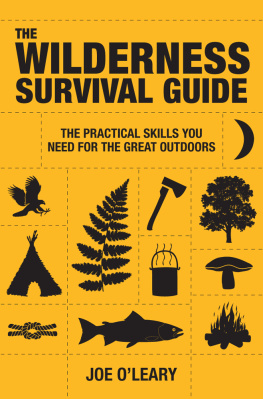
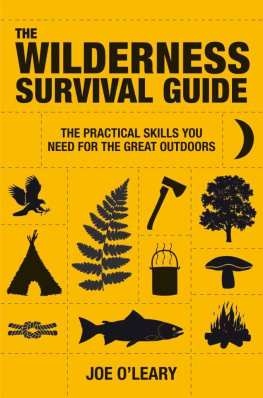


 It gets too dark to see where youre going. Its easy to misjudge distances or lose track of time when you are exploring and enjoying the outdoors, and activities such as day hikes and rafting trips frequently last longer than expected. Out in the wilderness, especially in the mountains, it can get dark quickly: all of a sudden, the sun disappears behind a hill and you realize you have a long way to walk in the dark to return to your camp or car. Always carry a flashlight or headlamp, as well as extra batteries, with you when you head out into the wilderness.
It gets too dark to see where youre going. Its easy to misjudge distances or lose track of time when you are exploring and enjoying the outdoors, and activities such as day hikes and rafting trips frequently last longer than expected. Out in the wilderness, especially in the mountains, it can get dark quickly: all of a sudden, the sun disappears behind a hill and you realize you have a long way to walk in the dark to return to your camp or car. Always carry a flashlight or headlamp, as well as extra batteries, with you when you head out into the wilderness.